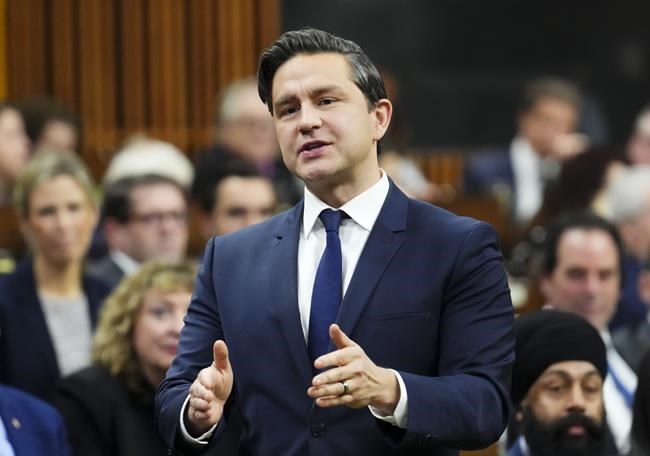OTTAWA — A federal inquiry into foreign interference has asked to delay its first report by about two months in order to allow sufficient time for a public process and hearings on the issues.
Commissioner Marie-Josée Hoguesaid in a press release Friday the requested postponement until May 3 is aimed at giving "meaning and purpose" to preliminary hearings, and to allow more time to maximize transparency.
Ensuring classified information is put into a form that can be released to the public is a long and complicated process, she added.
The commission, which will begin public hearings Jan. 29, is looking at attempted meddling by China, Russia and other foreign states, as well as non-state actors, in recent Canadian federal elections.
The inquiry will proceed in two parts, the first focusing on allegations of interference and any effect that might have had in the 2019 and 2021 federal elections. The second phase will examine what capacity the federal government has to detect and counter foreign interference. Hogue said the second report, due in December 2024, doesn’t need to be postponed.
Also on Friday, the inquiry dismissed a request from the Conservative party to reverse an earlier decision to deny it full standing in the factual phase of the proceedings.
That means the Conservative party won't be able to cross-examine witnesses or access documents that aren't exhibits made into evidence, though representatives will be able to attend hearings, access exhibits and make submissions.
Hogue said the Conservative party hadn't presented any new facts or developments to warrant overturning her earlier decision, and the party can still contribute by providing documents and information, as well as proposing witnesses and potential areas of examination for those witnesses.
Hogue said while the Conservative party had argued it was unfair to deny it full status while granting that status to the federal government, currently headed by the Liberals, there is a distinction between the government and the political party that controls the House of Commons, and it is important the commission is distinct from the political process.
In an earlier decision, Hogue wrote that "giving standing to a political party in a public inquiry should be done only after careful consideration and with the appropriate safeguards to ensure the inquiry does not become a platform for partisan talking points, grandstanding or scorekeeping."
In requesting reconsideration, the Conservative party had said it was not interested in using the inquiry for partisanship.
Conservative party spokesman Sebastian Skamski said in a statement Friday the decision not to grant Conservatives full status "is deeply concerning and undermines the credibility of the entire process."
Skamksi said political parties are directly affected by foreign interference, and Conservatives have been "specifically targeted by Beijing’s efforts to influence our elections." Skamski also argued the government of Prime Minister Justin Trudeau "is not a neutral, non-partisan entity and will naturally represent the interests of the Liberal Party of which it is comprised of."
The federal NDP has been granted the same intervener status as the Conservatives. The commission has given full standing to Conservative MP Michael Chong, separate from the Conservative party, citing Chong's statements that he was the subject of several disinformation campaigns and other forms of interference conducted by or on behalf of China.
Hogue also denied a separate request for reconsideration from the Human Rights Coalition, which had taken issue with politicians Michael Chan and Han Dong being given full standing and asked for their access to testimony and ability to examine witnesses to be limited.
This report by The Canadian Press was first published Dec. 22, 2023.
Anja Karadeglija, The Canadian Press

